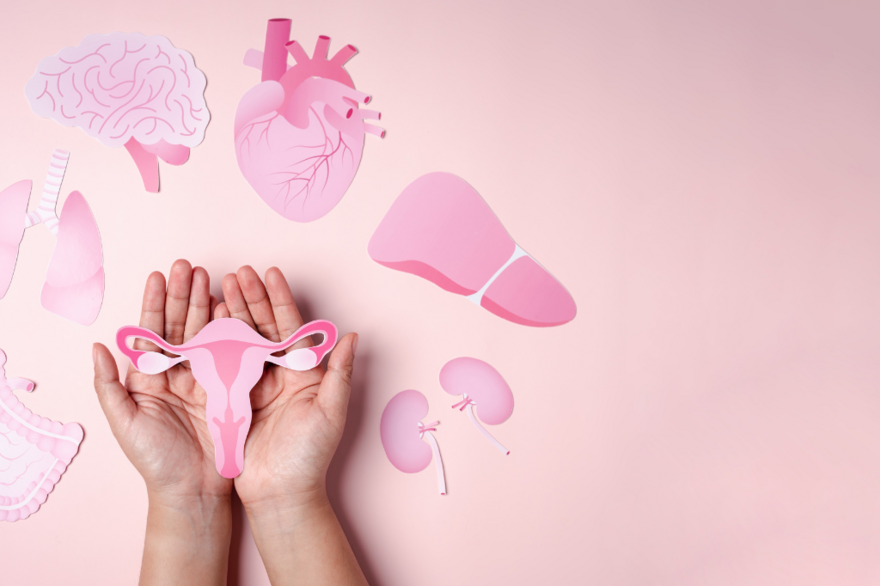Hallelujah! Polycystic Ovary Syndrome might be renamed to “Metabolic Reproductive Syndrome”

Hormonal chaos leaves women thinking they will never be healthy or have babies. Hallelujah! Polycystic ovary syndrome might be renamed to “Metabolic Reproductive Syndrome” as a result of debates and surveys of women affected by the condition and the health professionals who support their care, according to Dr Teedes of Monash University.
“It is time to assign a new name that actually reflects the complex features of the condition,” Helena J. Teede, MBBS, FRACP, PhD, professor and head of the Women’s Public Health Research Program at Monash University in Victoria, Australia, said during her presentation. “The new name needs to enhance the recognition of this major public health issue ... and can then lead to greater educational outreach and better public relations.”
I have PCOS. What does this mean for my hormones?
If a woman is told she has PCOS, this often means her body is overproducing androgens (such as testosterone). Whilst 82% of women have PCOS due to excess androgens, PCOS is ultimately characterised by problems with ovary function (cysts, fertility issues etc…) and insulin resistance. Both can irritate the balance in the body’s oestrogen, progesterone and testosterone levels, yet certain external factors can also increase the symptoms of PCOS. This includes inadequate exercise, stress and bad eating patterns – the perfect framework for hormonal madness!
Can I still have PCOS if I do not show any of the signs or symptoms mentioned?
The unfortunate nature of PCOS means that 70% of women will show little to no symptoms of PCOS. That means most women may not realise they have PCOS, with some women only finding out through tests once they fall pregnant.
Many years ago, a woman with PCOS will generally show some or all of the following symptoms:
- Acne or deep clustered pimples
- Extra facial hair
- Extra hair growth on chest or arms
- Unusual weight gain
- High testosterone levels
- Irregular periods
- Female androgenic alopecia (FAGA) - similar to the baldness pattern that some males experience, FAGA causes hair loss on the head.
This is not the case any longer. We see more ‘slim women’ who I refer to as the ‘slender ruster’ getting diagnosed with PCOS. They are often women who eat lots of ‘healthy’ sugar laden foods, do not sleep enough, and run on adrenaline. They are naturally slim and often not overly conscious of what they are eating because they don’t see the affects of what is happening on the inside! Stress, poor sleep and add a bit of poor diet are key risk factors for insulin havoc.
How can I manage PCOS naturally, without medication?
It is common for doctors to prescribe certain drugs to manage the unwanted symptoms of PCOS. Such treatments include diabetes medication, fertility drugs and/or birth control pills, and each has a purpose - helping to instigate ovulation, manage insulin levels and balance hormones. However, prescribed medication is not the only answer to management of PCOS. In fact, simple lifestyle hacks and consistent changes in dietary patterns can help to reset your hormones, reduce the symptoms and bring the body into harmony.
Simple and effective dietary and lifestyle hacks for PCOS:
- Increase OMEGAS – include more omegas in your diet to reduce PCOS symptoms, such as sustainably caught fish, organic chia seeds and flaxseed oil.
- Aim for LOW-GI – Studies have shown that a Low-Glycaemic Diet over 7 days can help to lower testosterone levels by as much as 20%.
- Avoid DAIRY – Dairy products cause inflammation, which can lead to a whole magnitude of health problems. Remove dairy from your diet for a month or two, and see if it helps to manage PCOS symptoms (keep a diary each day, this helps to compare how you’re feeling).
- Up your ZINC – Nuts and seeds are your new best friend, with low levels of zinc often related to acne and higher androgens in the body.
- Lose the WEIGHT – holding a few extra kilos can negatively effect your PCOS, increasing symptoms and impact hormone levels. Try to include some form of exercise into each day (as it also increases serotonin – your happy hormone!)
- Reduce TOXINS – within your home AND your beauty cabinet. Common household and cosmetic products actually contain ingredients that are toxic and harmful to your hormones. Switch to natural cleaning products, or learn how to make your own! Switch to natural beauty products and skincare too - this includes your toothpaste! Sources: https://www.womenshealth.gov/publications/our-publications/fact-sheet/polycystic-ovary-syndrome.html#b
Categories
- A Healthy View (507)
- Breakfast Recipes (22)
- Chicken Dinner Recipes (29)
- Chilli Recipes (5)
- Christmas Recipes (14)
- Curry Recipes (8)
- Dessert Recipes (20)
- Dinner Recipes (113)
- Easter Recipes (9)
- Energy & Vitality (2)
- Free Recipes (232)
- Gut Health (8)
- Hormone Health (16)
- Media (86)
- Mental Health (28)
- Mexican Recipes (11)
- Nutrition (199)
- Productivity (3)
- Salad Recipes (9)
- Sauce & Dip Recipes (12)
- Seafood Recipes (12)
- Sleep (5)
- Soup Recipes (12)
- Snack Recipes (56)
- Stress (1)
- Sugar (13)
- Weight Loss (35)
- Workplace Wellbeing (22)
- Brain Health (1)


0 comments
Leave a comment